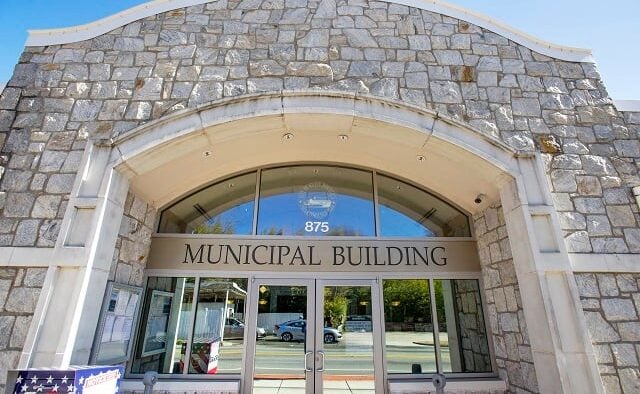
By Jaedon Mason
DeKalb County, GA — During its Jan. 17 work session, the Stone Mountain City Council discussed joining the DeKalb Regional Land Bank.
Councilmember Gil Freeman proposed the idea, saying recent Historic Preservation Committee actions as spurring his search for an alternative process for dealing with neglected properties. However, Councilmember Freeman’s presentation was sparse on details. Several council members raised concerns that Councilmember Freeman was unable to address. He said he brought the idea forward so the council’s research process could mirror his.
This left the council and the public with many questions about how the DeKalb Regional Land Bank worked.
The DeKalb Regional Land Bank (DRLB) is a land bank for properties within DeKalb County, and it was founded in January 2020. It is governed by an unpaid board of directors that meets the second Tuesday of every month from 2 p.m. to 4 p.m. via Zoom. Their website can be found here.
A land bank is an intergovernmental organization where local governments pool resources to create a body to “hold, manage, and develop” property.
Land Banks started as a way for local governments to address specifically unused, underdeveloped properties. Property acquisitions occurred through a step at the end of the normal tax foreclosure process. Liens are put on neglected properties. If the due tax is not paid, the property is sold at public auction (tax execution). All unsold properties would then be deeded to the land bank.
Profits from the property or sale of the property are reinvested into maintaining or improving other land bank properties—which could be anything from demolition to landscaping as properties are mostly dilapidated—or for more acquisitions depending on need.
The DRLB can not hold any property within a city that hasn’t joined and does not have the power of eminent domain. It also must keep a public list of all properties it is managing and is responsible for landscaping and keeping these properties up to code.
If Stone Mountain City were to join, the mayor would appoint a representative to serve on the board of directors of the DRLB for four years. The board is set up so the DeKalb County government will always have a majority, and each participating municipality will have one representative. Stone Mountain City would also be asked to contribute occasional meeting space, office supplies and staff hours to help do the work of the DRLB. Seventy-five percent of property taxes collected on any property sold by the DRLB would also go to help fund it for five years after the sale.
Particularly in the case of Atlanta/Fulton County and DeKalb, land banks also have the authority to clear the debt on the properties before selling them on again, hopefully making them a more enticing investment.
Land banks generally are implicitly founded on the principle that while the difference between the two can be expressed monetarily, the transition of neglected lots into productive, socially useful lots is invaluable and that it’s worth collaborating and setting aside resources to facilitate.
Of the 10 properties in disrepair that the Historic Preservation Committee sent “Notices of failure to maintain a historic” to, all 10 have had liens on them, and seven currently have a lien on them. Nine of the 10 are owned by the family and estate of former 20-year Stone Mountain City Councilmember Robert Smith, and it’s seven of these nine that are currently delinquent. Whether the DRLB would take these on and begin maintaining them would be a matter of discussion.
In Councilmember Freeman’s brief presentation, he said what inspired the creation of the DRLB was that, “There was land in DeKalb sold for $56,000 that is now worth $7,000,000, that was really an injustice that was done.”
In other news:
– The council approved a $239,000 outdoor patio project with the National Fitness Campaign. The total cost of the project would have been $269,000, but the project comes with a $30,000 dollar NFC Healthy Cities campaign grant. The project will install a fitness court, the design of which will be decided by the city.
– Council also approved a resolution increasing the city’s fee schedule. The updated fee schedule can be found here on page 97. With this item, they also passed a resolution that allows fees to be changed by resolution rather than ordinance as a matter of convenience in case they need to be changed again. The city won’t literally profit from the increases, and are intended to modernize the fee schedule bringing it in line with similar sized municipalities in metro Atlanta.
– The council also approved the purchase of Motorola portable radios for $32,386, the purchase of computer workstations for $5,785 and the purchase of replacement of cabinets, desks and secure storage lockers for $19,500.00. All of this will be paid for by SPLOST I money.
Read the article on Decaturish.











